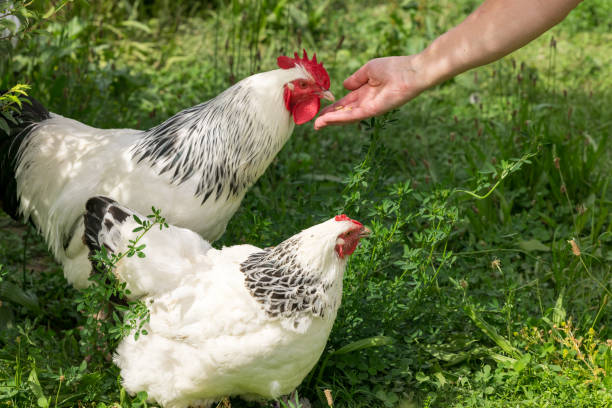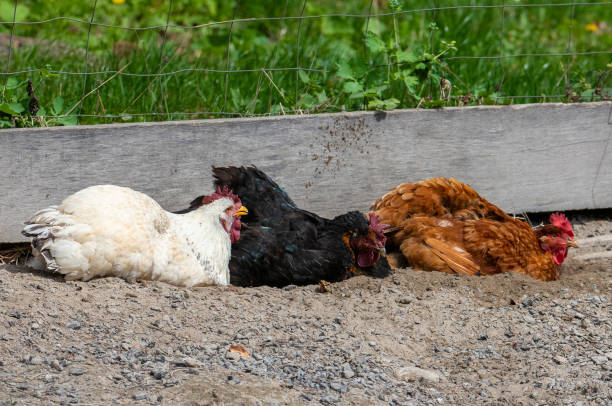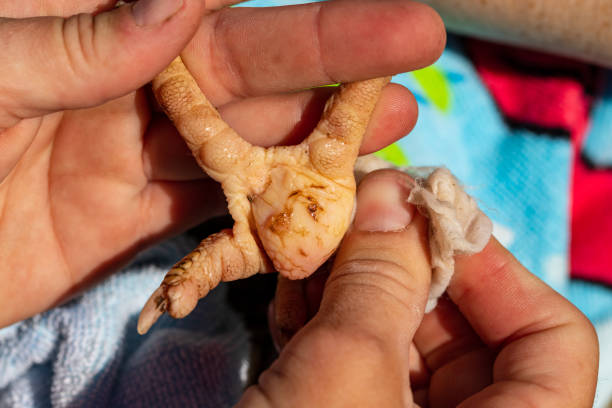When it comes to feeding your flock, it’s natural to wonder what’s safe and what’s not. Chickens are adventurous eaters, but not everything in your kitchen or garden is chicken-friendly. One of the most frequently asked questions is: Can chickens eat tomatoes? Let's dig into this topic and explore other commonly asked foods and fruits for your feathery friends.

What Can You Feed Your Chickens?
Before diving into specifics, it’s essential to know that chickens thrive on a balanced diet. While their main nutrition comes from layer feed, treats like fruits and veggies can be a great supplement. But moderation and safety are key.

1. Can Chickens Eat Tomatoes?
Yes, chickens can eat tomatoes! These vibrant fruits are safe for chickens to consume, but there are a few caveats.
What’s in Tomatoes for Chickens?
Tomatoes are packed with:
- Vitamins: A, C, and K, boosting their immune system and feather health.
- Antioxidants: Lycopene, which can reduce oxidative stress in their bodies.
- Water Content: Helps keep your chickens hydrated during hot weather.
Can Feeding Hens Tomatoes Affect Their Egg Quality?
The nutrients in tomatoes can enhance egg quality, leading to stronger shells and more vibrant yolks. However, overfeeding any treat, including tomatoes, can dilute the balance of their diet, potentially affecting egg production negatively.
How Often Should I Feed My Chickens Tomatoes?
Offer tomatoes as an occasional treat, ideally no more than twice a week. A handful of diced tomatoes for a flock of 6–8 is plenty.
What About Tomato Plants?
While ripe tomatoes are safe, tomato plants, leaves, and unripe green tomatoes contain solanine, a compound toxic to chickens. Always ensure your flock doesn't have access to tomato plants.
Avoid Moldy Tomatoes
Never feed moldy or rotting tomatoes to chickens. Mold can contain harmful toxins, leading to serious health issues.
How to Safely Feed Tomatoes to Your Chickens
- Wash the tomatoes to remove pesticides or dirt.
- Chop them into small, manageable pieces.
- Remove any green parts, including stems and leaves.

2. Can Chickens Eat Carrots?
Yes, chickens can eat carrots, both raw and cooked. They’re a great source of beta-carotene, which supports eye health and egg yolk pigmentation. Shredding raw carrots makes them easier to peck and digest.
3. Can Chickens Eat Bananas?
Absolutely! Bananas are a sweet treat packed with potassium and vitamins. Just peel them first, as the skin is tough and not as appealing to chickens.
4. Can Chickens Eat Cucumbers?
Yes! Cucumbers are hydrating and low in calories, making them a great summer snack. You can slice them or let your flock peck at a whole cucumber.
5. Can Chickens Eat Strawberries?
Chickens love strawberries! These berries are rich in antioxidants and vitamins. Just be mindful not to offer moldy ones.
6. Can Chickens Eat Potatoes?
Cooked potatoes are safe, but raw potatoes (especially green ones) contain solanine, which is toxic to chickens. Avoid feeding them raw or green potatoes.
7. Can Chickens Eat Grapes?
Yes, chickens can eat grapes, but cut them in half to avoid choking hazards. Grapes are high in sugar, so offer them sparingly.
8. Can Chickens Eat Peppers?
Ripe bell peppers are safe for chickens, but avoid feeding them the leaves, stems, or seeds, as they may contain solanine.
9. Can Chickens Eat Apples?
Chickens can eat apples, but always remove the seeds, as they contain small amounts of cyanide, which is harmful to chickens.
10. Can Chickens Eat Rice?
Yes, both cooked and uncooked rice are safe for chickens. Cooked rice is softer and easier for them to eat.
11. Can Chickens Eat Watermelon?
Watermelon is a summer favorite for chickens! It’s hydrating and refreshing. Let them peck at the flesh but avoid feeding the rind if it has pesticides.
12. Can Chickens Eat Bread?
Chickens can eat bread occasionally, but it’s not the healthiest option. Bread lacks essential nutrients and can lead to obesity if overfed.

Final Thoughts: Feeding Chickens the Right Way
Tomatoes are just one of many treats your chickens can enjoy, but remember to prioritize safety and moderation. Always observe your flock after introducing new foods to ensure they’re well-tolerated.
By understanding what chickens can and can’t eat, you’ll keep your flock happy, healthy, and clucking for more!



Laisser un commentaire
Tous les commentaires sont modérés avant d'être publiés.
Ce site est protégé par hCaptcha, et la Politique de confidentialité et les Conditions de service de hCaptcha s’appliquent.